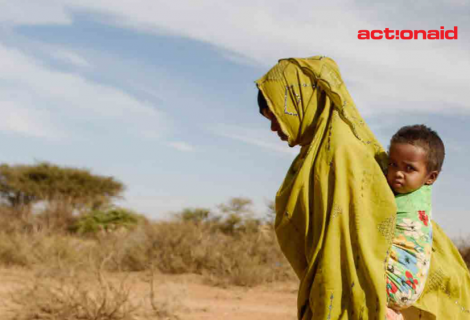
The world is currently enduring an unprecedented combination of climate-related crises. We are living through what will almost certainly be the hottest year on record, and have faced one of the strongest El Niño weather events of all time.
At the same time, in 2016 the Earth has recorded the highest ever level of greenhouse gases in the atmosphere, which are set to rise still further. Many climate scientists are concluding that climate change and El Niño are combining to create new and extreme impacts that are unprecedented.
The 2015-16 El Niño may yet prove to have caused the biggest drought that the world has ever seen. Many countries are enduring their worst droughts in decades, affecting hundreds of millions of people. National emergencies have been declared in several countries with women particularly affected by the crisis.
The El Niño weather phenomenon itself may have passed, but its impact is still growing as food insecurity resulting from drought is not expected to end for millions of people until the middle of next year.
Affected countries currently face a funding shortfall of US$3.1 billion to cope with the ongoing crisis, which is expected to last for many months, in some cases until June next year. Immediate support for farmers, particularly in East and Southern Africa where the growing season has just started, is urgently required. A timely response could help avoid another food crisis in 2017.
Even though the Paris Agreement on climate change was celebrated with much fanfare less than a year ago, the lack of adequate response to the global El Niño drought shows that the world is not yet willing or able to respond properly to an actual climate crisis.
Not only must the world now act to further cut greenhouse gas emissions, but as predictable and climate-induced extreme weather events are likely to become the “new normal,” far greater efforts are needed to prevent these from becoming humanitarian crises. Governments, donors, climate and humanitarian agencies must work together to build people’s and countries’ resilience, and prepare for and respond to an increasingly climate-chaotic world.
ERRATUM NOTICE December 2016: Please note that a correction has been made to page 15, indicating that 330 million people were affected by drought in India (not Ethiopia as previously suggested).